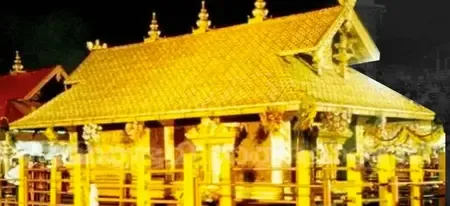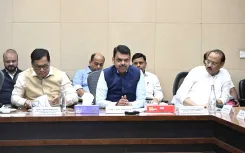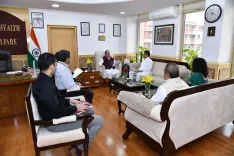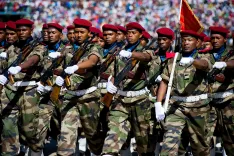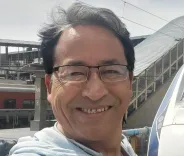Did Trump Honor Modi While Sharif Praised Him?
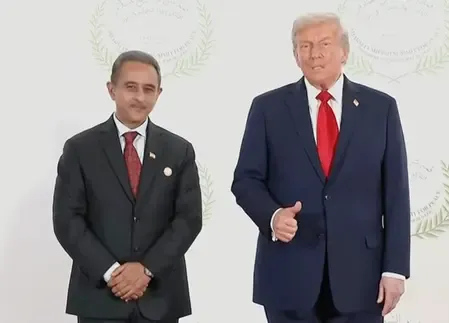
Synopsis
Key Takeaways
- Trump praised Modi for his leadership at the Gaza Summit.
- Sharif's discomfort was evident during the proceedings.
- The US continues to play a crucial role in South Asian diplomacy.
- Sharif credited Trump for preventing nuclear conflict.
- Pakistan faces numerous internal challenges that threaten stability.
New Delhi, Oct 14 (NationPress) Despite being unable to attend the Gaza Peace Summit in Sharm El-Sheikh due to prior commitments, Prime Minister Narendra Modi received heartfelt accolades from co-host US President Donald Trump, which seemed to unsettle Pakistan Prime Minister Shehbaz Sharif.
The summit was also co-hosted by Egypt’s President Abdel Fattah El-Sisi.
"India is a magnificent nation with a very good friend in charge who has done an exceptional job. I believe that Pakistan and India will coexist harmoniously," declared Trump, radiating positivity at the cameras on Monday (October 13). Turning intermittently towards Sharif, who stood behind Trump during his final remarks at the summit, Trump expressed hope that India and Pakistan would "live very nicely together".
The light chuckles from the world leaders present were audible during the televised address. Notably, Trump paused his speech to invite Sharif to share a few words in what seemed an unplanned gesture.
Clearly caught off guard, Sharif restricted his remarks to praising Trump’s efforts toward the peace process. He referred to the day as one of the most significant in modern history, highlighting how peace was achieved through “tireless endeavors led by President Trump.” Sharif also expressed gratitude to Trump for preventing a nuclear escalation between India and Pakistan, stating that without the US President’s intervention, the conflict could have escalated into catastrophic consequences.
He even announced plans to nominate Trump for the Nobel Peace Prize once again. While Trump garnered international acclaim for his efforts in brokering a truce in Gaza and developing a 20-point plan, he appeared somewhat flustered by Sharif’s praises, exclaiming that he did not anticipate such compliments.
Nevertheless, Trump has frequently discussed his crucial role in the peace process and hostage exchanges, claiming credit for averting a war between India and Pakistan multiple times. He highlighted the Gaza truce as part of the eight conflicts he resolved during his second term. While mentioning the Pakistan Prime Minister, he also referenced General Asim Munir by name, though he was not among the attending heads of state.
This reference signals the considerable influence the Pakistan Army wields over an elected government. "Asim Munir," Trump remarked, "is my favorite field marshal." Recently, Sharif accompanied Munir to the White House to persuade Trump to develop Pasni, a minor deepwater port in Balochistan’s Gwadar district.
The pair aims to transform the port, which currently serves fishing and coastal trade, into a strategic mineral export terminal with assistance from the US. They also seek Washington’s support in suppressing a Baloch revolt demanding independence from Islamabad's governance, backed by the Army. The area faces a severe human rights crisis amid military operations.
Civilians, including women and children, have been casualties of both gunfire and aerial bombardments, as reported. In August, the US Department of State issued a statement designating the Baloch Liberation Army as a foreign terrorist organization. However, dissenting voices have emerged within the Pakistani government on diplomatic matters, such as Defence Minister Khawaja Muhammad Asif, who publicly asserted that China is a more dependable ally than the US.
In addition to the challenges in Balochistan, Islamabad grapples with ongoing insurgencies in Pakistan-occupied Kashmir (PoK), armed conflicts in Khyber Pakhtunkhwa, the resurgence of Islamist extremists leading to deadly confrontations in major cities, a Taliban assault near the Afghanistan border, and a severe economic crisis, all contributing to the country's instability. Thus, the current Pakistani leadership’s actions are seen as desperate attempts for mere survival.




